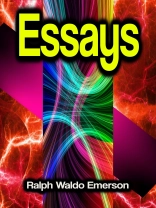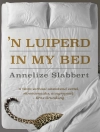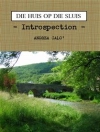Essays Ralph Waldo Emerson – Ralph Waldo Emerson, Alfred Kazin observes in his Introduction, ‘was a great writer who turned the essay into a form all his own.’ His celebrated essays–the twelve published in Essays: First Series (1841) and eight in Essays: Second Series (1844)–are here presented for the first time in an authoritative one-volume edition, which incorporates all the changes and corrections Emerson made after their initial publication.
Tentang Penulis
In 1803, Ralph Waldo Emerson was born in Boston. Educated at Harvard and the Cambridge Divinity School, he became a Unitarian minister in 1826 at the Second Church Unitarian. The congregation, with Christian overtones, issued communion, something Emerson refused to do. ‘Really, it is beyond my comprehension, ‘ Emerson once said, when asked by a seminary professor whether he believed in God. (Quoted in 2, 000 Years of Freethought edited by Jim Haught.) By 1832, after the untimely death of his first wife, Emerson cut loose from Unitarianism. During a year-long trip to Europe, Emerson became acquainted with such intelligentsia as British writer Thomas Carlyle, and poets Wordsworth and Coleridge. He returned to the United States in 1833, to a life as poet, writer and lecturer. Emerson inspired Transcendentalism, although never adopting the label himself. He rejected traditional ideas of deity in favor of an ‘Over-Soul’ or ‘Form of Good, ‘ ideas which were considered highly heretical. His books include Nature (1836), The American Scholar (1837), Divinity School Address (1838), Essays, 2 vol. (1841, 1844), Nature, Addresses and Lectures (1849), and three volumes of poetry. Margaret Fuller became one of his ‘disciples, ‘ as did Henry David Thoreau.
The best of Emerson’s rather wordy writing survives as epigrams, such as the famous: ‘A foolish consistency is the hobgoblin of little minds, adored by little statesmen and philosophers and divines.’ Other one- (and two-) liners include: ‘As men’s prayers are a disease of the will, so are their creeds a disease of the intellect’ (Self-Reliance, 1841). ‘The most tedious of all discourses are on the subject of the Supreme Being’ (Journal, 1836). ‘The word miracle, as pronounced by Christian churches, gives a false impression; it is a monster. It is not one with the blowing clover and the falling rain’ (Address to Harvard Divinity College, July 15, 1838). He demolished the right wing hypocrites of his era in his essay ‘Worship’: ‘. . . the louder he talked of his honor, the faster we counted our spoons’ (Conduct of Life, 1860). ‘I hate this shallow Americanism which hopes to get rich by credit, to get knowledge by raps on midnight tables, to learn the economy of the mind by phrenology, or skill without study, or mastery without apprenticeship’ (Self-Reliance). ‘The first and last lesson of religion is, ‘The things that are seen are temporal; the things that are not seen are eternal.’ It puts an affront upon nature’ (English Traits , 1856). ‘The god of the cannibals will be a cannibal, of the crusaders a crusader, and of the merchants a merchant.’ (Civilization, 1862). He influenced generations of Americans, from his friend Henry David Thoreau to John Dewey, and in Europe, Friedrich Nietzsche, who takes up such Emersonian themes as power, fate, the uses of poetry and history, and the critique of Christianity. D. 1882.
Ralph Waldo Emerson was his son and Waldo Emerson Forbes, his grandson.












